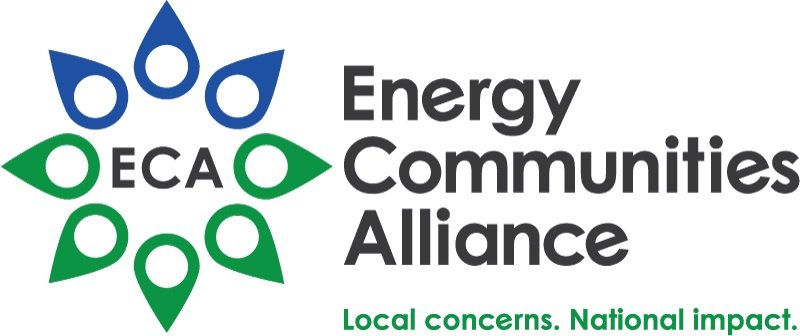DOE SECRETARY ANSWERS QUESTIONS REGARDING BUDGET AT ENERGY & WATER SUBCOMMITTEE HEARING
On May 7, Department of Energy (DOE) Secretary Chris Wright appeared before the House Energy and Water Appropriations Subcommittee to discuss the President's fiscal year 2026 discretionary budget request for DOE.
During the hearing, Wright discussed how DOE is taking steps to accelerate innovation, encourage breakthroughs in nuclear fusion, enable commercial nuclear development, and advance the rapid deployment and export of next generation nuclear technology, including small modular reactors (SMRs). He stated that “America must lead the commercialization of affordable and abundant nuclear energy.” Wright also expressed a desire to cut red tape and to streamline the permitting process for nuclear reactors, as well as making cheaper and easier to extend plant permits and keep existing plants operating.
Chuck Fleischmann (TN-3), Chair of the House Energy and Water Appropriations Subcommittee, opened the hearing by thanking Wright for being openly communicative and cooperative with Congress, and for visiting the Oak Ridge Reservation in the City of Oak Ridge, which Congressman Fleischmann represents. He highlighted the immense role that he believes nuclear power has to play in rebuilding American energy dominance and meeting rising demands for energy. He began the questioning by asking Wright what DOE is doing to accelerate the development of commercially competitive HALEU capacity.
Wright answered that DOE recently allocated the HALEU that DOE is currently holding in stockpiles to five companies developing next generation reactors to assist these companies in testing and accelerating commercial deployment. The companies included are TRISO-X, Kairos Power, Radiant Industries, Westinghouse Electric Company, and TerraPower. He followed that DOE has also put out a request for interest to companies for producing HALEU in the United States. Wright announced that soon, DOE will send out a solicitation for HALEU as well, looking to utilize the $2 billion Congress has allocated to DOE for domestic HALEU production.
Fleischmann followed this question by inquiring into what strategy DOE is pursuing to advance nuclear fuel reprocessing technologies in the United States, and how DOE will ensure the long term domestic commercial viability of those technologies.
Wright answered that he believes the U.S. has failed to find a long-term storage for spent nuclear fuel (SNF), and that spent fuel is a growing liability for our country that must be addressed. He said that there is alignment between DOE and the Department of Defense (DOD) on reprocessing, and that the DOD will soon release a study evaluating an appropriate way to move forward with reprocessing. Wright clearly stated that he sees SNF as a resource, and not a burden.
Afterwards, Congressman Mike Simpson (ID-2), who represents eastern Idaho and communities around Idaho National Lab, questioned Wright on what the President's FY2026 budget request has in store for financing new nuclear development and the Office of Environmental Management’s (EM) cleanup program.
Wright replied although there is a funding reduction for the Office of Nuclear Energy (NE), it does not indicate a lack of focus or a lack of desire for nuclear energy. Wright stated that he believes the biggest factor for the success of nuclear energy is attracting private capital investment. To help meet this need, Wright recalled his first 100 days in office having been spent with nuclear plant developers from both the “big plants and the small modular reactors”; representatives from the National Laboratories; and hyperscalers, who he deemed “the ultimate customers and end users of nuclear”. Wright’s goal for DOE is to fund the majority of new nuclear development by bringing in private capital. He acknowledged, however, that government loans and loan guarantees from NE and the Loans Program Office have a crucial role in to pay in financing new nuclear as well. Regarding EM, Wright assured the Subcommittee that the total reduction in the EM budget is small, and that there is “no intention to slow down cleanup at Idaho or any of the other sites”. He said that the EM program would look at new ways to improve efficiency to accelerate, not slowdown, cleanup.
Congressman Mike Levin (CA-49) asked Wright if DOE would work with Congress to support work on spent fuel and cleanup, citing the consent-based siting program.
Wright offered his view of an “opt-in approach” that would consider which communities and states would like to host a nuclear waste disposal site, and what options for colocation could arise from that – such as a reprocessing plant or other nuclear facilities. Wright stated, “I think we've got to change the paradigm and invite people to partner with us to their economic benefit at their choice”. The Subcommittee were in agreement with Wright’s vision, and he committed to report back to the Subcommittee with an integrated management plan for spent nuclear fuel (SNF).
Congressman Dan Newhouse (WA-4), who represents the Tri-Cities Area in eastern Washington, inquired into what actions DOE will take to ensure the National Laboratories have the resources necessary to continue their work.
Wright clarified that DOE does not want to shrink or stop any of the critical research in the National Labs, but rather to trim the fluff and make sure the Labs are not duplicating efforts that have already been explored. His support for the labs were firm, as during the hearing he proclaimed that Idaho National Laboratory was a pioneering leader in nuclear, and he praised the research being done into nuclear fusion at Pacific Northwest National Laboratory.
Congressman Fleischmann closed the hearing by thanking Secretary Wright for appearing before the Subcommittee. ECA will continue to provide updates on the appropriation and budget for DOE as they develop. For more information, visit our website.
